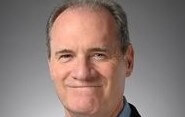The old-time comedian Jimmy Durante, when commenting on intrusive personalities who attempted to steal his spotlight, used to employ the catchphrase ‘Everybody wants to get into the act.’ That expression seems rather timely in regard to what's happening in Washington. The $700 billion rescue plan/bailout (call it what you will) that was supposed to save the financial services system from a subprime-induced collapse is now being retooled to include financial service providers who were not part of the original program. Even worse, more entities are emerging with outstretched hands and demands for federal funds.
Last Wednesday, Treasury Secretary Henry Paulson shifted a significant part of the $700 billion program away from part of its inital purpose – buying up troubled mortgage-backed securities – and sent the funds in the direction of non-housing related areas including credit cards, student loans and automobile loans.
And speaking of automobiles, there is a parallel movement to get a rescue/bailout plan through the lame duck Congress that will save the American auto industry from ruin. If that's not bad enough, there is also agitation among the governors of several states to get federal funds for rescue/bailout purposes.
Indeed, which entity will be next to make demands for federal funds? Rep. Spencer Bachus, R-Ala., complained in a House hearing, ‘Does it end with manufacturing? What about retail? What about Circuit City?’
When it comes to getting a mega-cash infusion from Uncle Sam, it is starting to seem like everybody wants to get into the rescue/bailout act. Whether they will get in remains to be seen. As of this writing, there is no auto industry bailout, nor have the states been saved by emergency federal funds. That's the good news.
The bad news is that Paulson's announcement exposes the shortcomings of the hastily assembled emergency solution being offered by Washington. By shifting the focus to other parts of the financial services industry, the effort to shore up the mortgage banking industry is being weakened.
Paulson's notion that other lending areas need to be reinvigorated, especially credit cards and student loans, is troubling when one considers how those industries got into their respective dilemmas. Seriously, anyone who accuses mortgage bankers of being predatory obviously never saw the credit card or student loan industries in action.
Paulson's logic is that the wider shift in the $700 billion will help thaw out the frozen credit markets. As he stated in his announcement of this action, ‘I cannot imagine anything else will have a bigger stimulus impact than getting credit going again.’
Yes, but can we expect the federal government to inject itself into the ownership or operation of the credit card companies and the student and automobile lenders? Hey, if Washington can take the reins of Fannie, Freddie and AIG, why shouldn't they get into the boardrooms of the ailing giants in those other lending industries?
It is difficult not to get the impression that Paulson appears to be throwing ideas out before actually sitting down and mapping out the details. Let's hope the incoming Obama administration will have a real economic recovery game plan in place by the time Jan. 20 rolls around. The country cannot tolerate another two months of improvised strategies, and the mortgage banking industry is clearly not going to be able to speed its recovery in this type of environment.
– Phil Hall, editor, Secondary Marketing Executive.
(Please address all comments regarding this opinion column to hallp@sme-online.com.)













